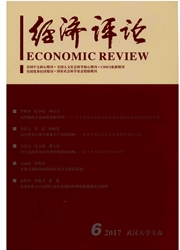

 中文摘要:
中文摘要:
关于政治关联的文献中,都提及了政治关联能够为寻求政治关联的组织带来额外的资源,这种资源大多直接表现为经济上的好处。但这些研究并未触及政治关联的效率边界问题。本文以我国2007—2010年A股上市公司为样本,实证检验政治关联对企业信贷融资的影响。研究发现:在我国银行业普遍“惜贷”的局面下,某些上市公司依然取得了银行的超额信贷支持;获得超额信贷支持的大多是国有企业,并且高管的政治背景以及企业对地方经济的影响力强化了国有企业超额贷款的形成;某些民营企业尽管也得到了超额银行贷款,但起主要作用的是银行关系,而非政治关联。此外,金融业的市场化改革对抑制国有企业的超贷行为基本上不起作用,却显著地抑制了民营企业超额贷款的形成。
 英文摘要:
英文摘要:
Based on measuring the political relationship from two aspects of whether the director of board or the CEO of a company is politically affiliated and the number of local listed Corporations, and by taking as our specimens the listed Corporations from 2007 to 2010, this paper examines the impact of political relationship on the accessibility of Excess credit. We find that, facing the credit crunch, some enterprises still obtain excess loans. Further study finds that, most of the enterprises that get excess credit are state -owned ones, and politically affiliated executives aggravate the formation of excess credit; Some private enterprises also gain excessive loans, but the key figure is bank affiliated executives, rather than political relationship. The results of our study indicate that, in China, developing political relationship does good to alleviating the credit constraints that puzzles the private companies, but it is not sufficient to trigger the banking system borrowing the private enterprises excess funds.
 同期刊论文项目
同期刊论文项目
 同项目期刊论文
同项目期刊论文
 期刊信息
期刊信息
